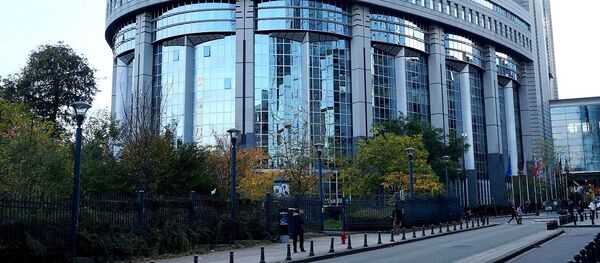The findings, which have been published in Proceedings of the Royal Society A, help to explain how fear of crime exists in cities and countries where crime rates are actually very low.
Fear of #crime is contagious, even in low crime communities finds study by @rafaelprietoc & @stevenbishopucl https://t.co/gcuN5VTKDm #maths pic.twitter.com/IJywVaQK2D
— UCL Math & Phys Sci (@uclmaps) July 12, 2017
Mr. Rafael Prieto Curiel, who is from Mexico City, where he worked in the police department, developed a simple mathematical model that helps to explain why people are so fearful of terrorism for example, but actual rates of terror activities remain fairly low.

To understand how fear of crime varies across populations, three different groups were established. The first was a large majority of people who were statistically immune to crime, the second was a group that experiences a small amount of crime, and the third was a small population that suffers high rates of criminal activity.
They found that when individuals that never suffer crime only interacted with people from their own group, they feel secure, however when they connected with someone from one of the other groups, their fear of crime increased.
Measuring the concentration of crime. The paper that @DelmSofia @StevenBishopUCL and I wrote for @SpringerCrim https://t.co/wTV08DDkPe
— Rafael Prieto C. (@rafaelprietoc) May 19, 2017
For instance, when 5 percent of the interactions occur with people from another group, the model predicts that more than 50 percent of the individuals who never suffer crime will fear it.
The findings also suggest that a decrease in crime rates might have almost no effect on the perception of security. For example, with low crime levels (5 percent of its regular level) the simulations predict that between 30 to 40 percent of the population from all three groups will fear crime.
"So, the issue we tried to analyze is something I experienced during my years of working as a police officer in Mexico City. We discovered that the number of crimes is not related to the fear of the society or city. We observed that even if crime rates dropped, fear remained the same. That challenge is one of the things that motivated me to start a PhD here at UCL.
"By using maths and interesting equations and theories, such as how we share ideas with others, we found that fear of crime might be more the result of a contagion process, so people sharing ideas with others," Mr. Prieto Curiel told Sputnik.
According to Mr. Prieto Curiel, crime happens to be low in frequency even in Mexico City, which is considered a dangerous place. The crime results are considerably low compared to the whole population, which means that the majority will not suffer any crime.
Mr. Prieto Curiel discovered that for Mexico City, half of the city is immune to suffering crime. This means they will go through their life without experiencing any crime at all.
"Now they don't know that they are immune, and that they will never suffer a crime. Nonetheless, they have some degree of fear. This is precisely the result of sharing ideas with others rather than it being a discriminatory process — it just means that fear is more the result of indirect victimization. What that means is that you don't actually suffer crime, but when you hear somebody suffered a crime, and if that person is similar to you or if it's in your neighborhood or you can identify with the victim, it means you get a bit more fearful. That being a bit more fearful means we get more and more fearful because of things that we hear, which is how we came to the conclusion that fear of crime is mostly a shared idea rather than the result of crime. Crime has low frequency, therefore there's a mismatch between crime rates and fear," Mr. Prieto Curiel told Sputnik.
Mr. Prieto Curiel hopes that this simple mathematical model will help with terrorism and people's perception of international immigration.
He hopes that people will start to understand the mismatch between reality and someone else opinion, whether that be from the media or the government.





